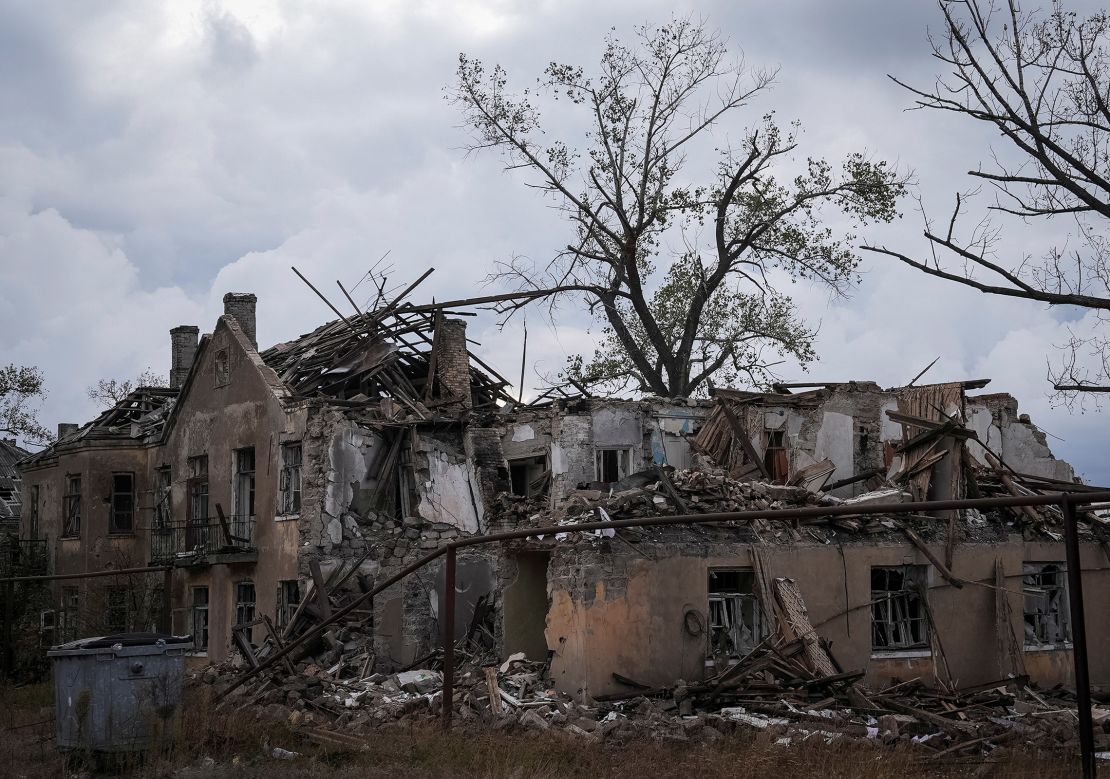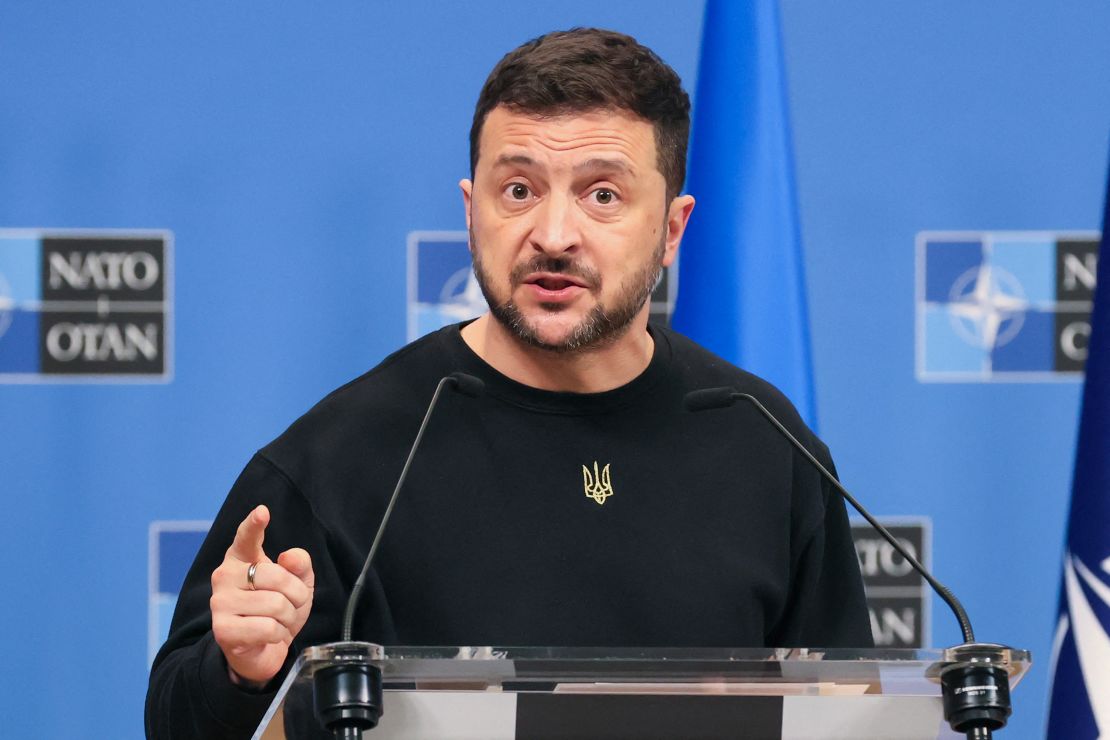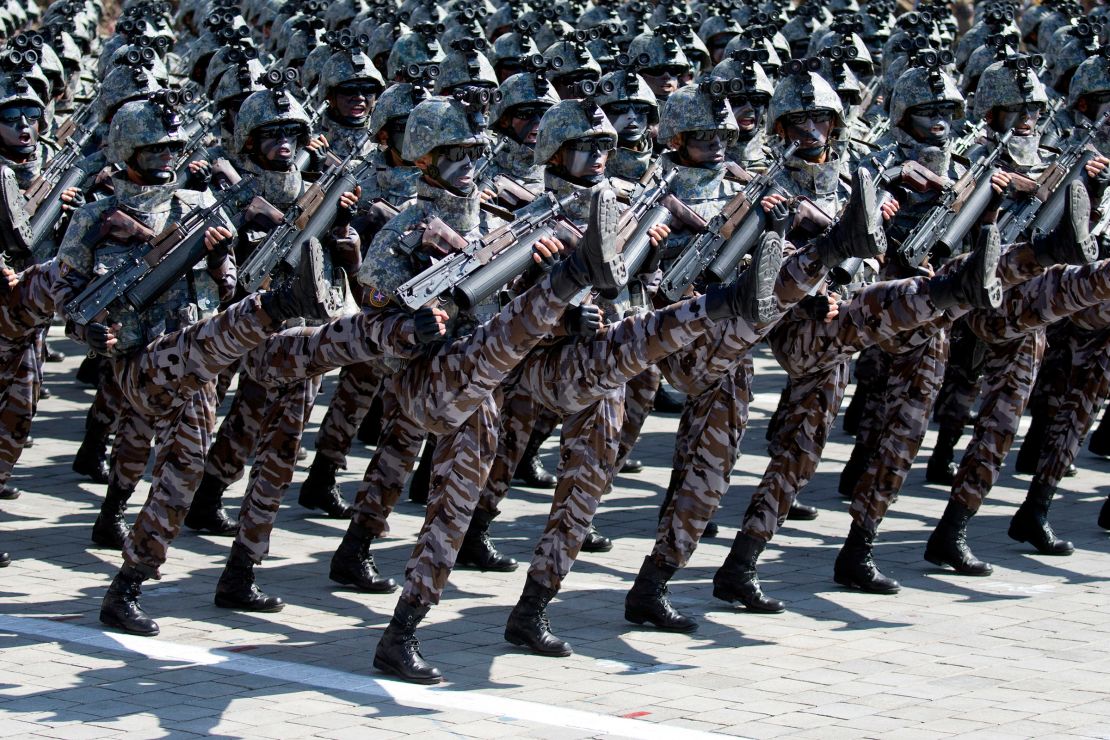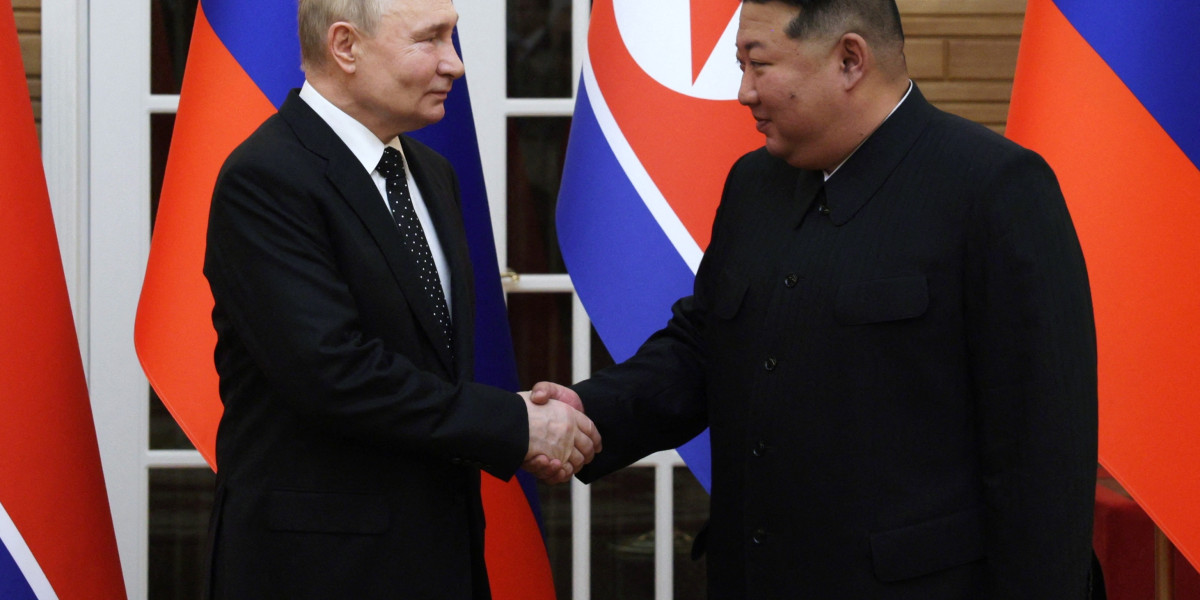There is growing intelligence that North Korea has been readying itself for a more direct role in Russia’s war in Ukraine, a move that could reverberate far beyond the frontlines of the war raging in Europe.
Both Ukraine and South Korea have claimed that North Korean troops were dispatched to Russia for training with the aim of being deployed to Ukraine.
Russia and North Korea have denied the reports, while South Korea has hinted that any deployment could cause it to reassess what level of military support it gives Ukraine.
In recent months, Moscow and Pyongyang have deepened their anti-United States military partnership and the growing alliance has concerned officials in Kyiv and Washington.
Here’s what we know.
Are North Koreans in Ukraine?
Ukrainian President Volodymyr Zelensky has repeatedly warned that North Korean troops are joining Russia’s war, telling a NATO summit last week that “10,000” soldiers and technical personnel were being prepared.
On Tuesday, the president said in his evening address that Ukraine had intelligence about Russia “training two military units from North Korea” involving perhaps “two brigades of 6,000 people each.” Zelensky also told reporters that Ukraine has seen North Korean “officers and technical staff in the temporarily occupied territories” and believes Russia is “preparing a grouping” to enter Ukraine.

A source in Ukrainian intelligence previously told CNN that a small number of North Koreans have been working with the Russian military, mostly to help with engineering and to exchange information on the use of North Korean ammunition.
Meanwhile, South Korea’s spy agency, the National Intelligence Service (NIS), said Friday that North Korea has shipped 1,500 soldiers, including special forces fighters, to Russia for training.
Those reports appeared to be bolstered when North Korean soldiers were filmed receiving uniforms and equipment at a training ground in Russia’s Far East. Another video circulating on social media and geolocated by CNN showed troops arriving at the Sergeevka Training Ground close to Russia’s border with China.
What’s North Korea’s relationship with Russia?
Russia and North Korea, both pariahs in the West, have forged increasingly friendly ties since Moscow’s invasion.
In June, the two nations signed a landmark defense pact and pledged to use all available means to provide immediate military assistance in the event the other is attacked.
Multiple governments have accused Pyongyang of supplying arms to Moscow for its grinding war in Ukraine, a charge both countries have denied, despite significant evidence of such transfers.

The arms shipments, which include thousands of metric tons of munitions, have helped Russia replenish its dwindling stockpiles in a war where Ukraine’s forces have long been outgunned and outmanned. Meanwhile, cash-strapped North Korea is believed to have received food and other necessities in exchange.
The hermit nation also seeks to advance its space, missile and illegal nuclear programs.
What has the reaction been?
Kremlin spokesman Dmitry Peskov has dismissed the allegations that North Korean personnel had been sent to help Russia as “another hoax.”
When asked directly by reporters on Monday whether Moscow was sending North Korean troops to fight in Ukraine, Peskov said that North Korea is a “close neighbor” and the two states were “developing relations in all areas.”
“This cooperation is not directed against third countries,” he said.
North Korea called the claims “groundless, stereotyped rumors,” during a UN General Assembly meeting Monday.
But Seoul is not taking this lightly.
On Monday, its Foreign Ministry summoned the Russian ambassador and urged an “immediate withdrawal of North Korean troops.”

South Korean First Vice Minister of Foreign Affairs Kim Hong-kyun warned the alleged deployment violates UN Security Council resolutions. The National Security Office held an emergency meeting to discuss a possible South Korean response.
Following the meeting, Kim Tae-hyo, the first deputy director of national security, said the government would implement “phased countermeasures” according to the “progress of the military cooperation between Russia and North Korea.”
It is unclear what the measures would be, but a South Korean government official said that they are preparing “diplomatic, economic and military measures.”
As North Korea is in the “preliminary stage of deploying troops to Russia,” South Korea is assessing whether it will proceed to “actual combat participation,” the government official added.
“We are developing scenarios to understand the potential impacts North Korea and Russia’s actions could have on us,” the government official said.
Seoul, one of the world’s largest arms suppliers, has provided humanitarian aid and financial support to Ukraine, while joining Western sanctions against Moscow. But it has has not directly provided lethal weapons to Kyiv due to arms export controls to countries at war.
The stakes are high.
North and South Korea are separated by one of the world’s most militarized borders and remain technically in a state of war. Relations between the two have deteriorated in recent years with an uptick in fiery rhetoric on both sides of the demilitarized zone.
The US has not publicly confirmed the North Korean troop deployment, saying it is “continuing to look into the reports.” A State Department spokesperson said Tuesday that if true, “it certainly would mark a dangerous and highly concerning development” and that the US would continue to consult with its allies “on the implications of such a dramatic move.”
But British Defense Minister John Healey told Parliament Tuesday “it is now highly likely that the transfer of hundreds of combat troops from North Korea to Russia has begun.”
What’s the significance?
Any intervention by North Korea could be a watershed moment. The isolated and heavily sanctioned regime taking a role in a major international conflict on the other side of the world is something it has not done in decades.
The state has one of the largest militaries in the world, with 1.2 million soldiers, but many of its troops lack combat experience.
Analysts say the North Korean regime would have a lot to gain from deploying troops, including giving its forces battlefield experience and technical training. The arrangement could also help North Korea gain real-world intelligence on the functioning of its weaponry.
“The special forces troops will come back with live battlefield experience, live infiltration experience against an alerted combat opponent. That makes them more dangerous,” said Carl Schuster, former director of operations at the US Pacific Command’s Joint Intelligence Center.

“I think Kim is providing the troops to gain the resources he needs to sustain the regime, and lessons learned that he might apply if he thinks the conflict is coming in the peninsula,” he added.
Chun In-bum, a former lieutenant general in the South Korean army, told CNN that the Russians would “get a boost in manpower, which they lack right now” and the North Koreans will get “money, technology” and experience.
Those deployed would be special “elite” forces rather than conventional troops, analysts say.
“If they succeed there, they will get not only firsthand battle experience, but international recognition. So, this could be a real serious problem for the entire world,” Chun said.
“What if the North Koreans make this a habit? What if they become a base for supplying well-trained soldiers? The potential of this deployment should be very concerning.”









